Greece is a beautiful country with rich culture and history. And they are well-known for their archaeological sites, picturesque islands and exotic beaches. Most of the visitors travel to Greece for the first time will go to the popular destinations like Athens, Santorini, Mykonos and etc. In order to bring home a complete Greek experience, there is one place that everyone should include in their itinerary is none other than the mystical Meteora. The Meteora is a phenomenal place and I feel that everyone should visit this place at least once in a lifetime.
About Meteora
About Meteora
Serenely rested on the summits of the uniquely shaped rock formations, the Meteora is one of the most spiritual place in Greece. The Meteora is a Greek word meaning "suspended in the air", which perfectly describes a group of stunning Eastern Orthodox monasteries in the north central Greece. As early as the 11th century, the caverns of the Meteora were occupied by the hermit monks. And in the 14th century, the monks started to build these monasteries. At one point of time, there were around 24 monasteries in the Meteora. Eventually, there are 6 active monasteries left and today the Meteora has been included in the UNESCO World Heritage List.
When you are in the Meteora, these are the 6 monasteries in the heavens above that you should visit:
The Monastery of St. Nicholas Anapavsa was founded in the 15th century and the magnificent frescoes were painted by Theophanis Strelitzas, a monk from Crete. This is the nearest monastery from the Kastraki village which is around 1km away. Today, only one monk lives at the monastery.
2. Monastery of Rousanou
<< Monastery of St. Nicholas Anapavsa >>
Opening hours: 09:00 to 15:30
Closed on Fridays
Location: Click here for Map
Year Visited: 2015 (April)
The Monastery of Rousanou was founded in the 16th century and it was damaged severely during the World War II. The monastery was later restored and today, it is a home to a small community of nuns. This monastery is around 2.5km away from the Kastraki village. At the bottom of the monastery is also a great place to catch a sunset, or else you can go to the Psaropetra Rock, an observation deck which is around 2km from Rousanou Monastery.
<< Monastery of Rousanou >>
Opening hours: 09:00 to 14:00
Closed on Wednesdays
Location: Click here for Map
Year Visited: 2015 (April)
3. Monastery of the Great Meteoron
The Monastery of the Great Meteoron was founded in the 14th century and it is the biggest and oldest of the six monasteries of Meteora. This monastery was named as the monastery that "suspended in the air" because it was built on top of the massive rock high above the valley. From here, you could easily get an awe-inspiring panoramic view of Varlaam Monastery and the surroundings.
<< Monastery of the Great Meteoron >>
Opening hours: 09:00 to 17:00
Closed on Tuesdays
Location: Click here for Map
Year Visited: 2015 (April)
4. Monastery of Varlaam
The Monastery of Varlaam was founded in the 14th century and it is the second largest monastery in the Meteora compound. This monastery is located very close to Great Meteoron Monastery, just around 1km away. The view of Varlaam Monastery from a distance is pretty stunning and it could be simply one of the most photogenic monasteries of all.
<< Monastery of Varlaam >>
Opening hours: 09:00 to 16:00
Closed on Fridays
Location: Click here for Map
Year Visited: 2015 (April)
5. Monastery of St. Stephen
The
Monastery of St. Stephen is the most accessible monastery in the Meteora
since there is a small bridge link to the entrance; the visitors just
have to cross the bridge without having to take any steps. Today, the
monastery has developed into a nunnery and it is inhabited by a small
group of nuns.
<< Monastery of St. Stephen >>
Opening hours: 09:30 to 13:30 and from 15:30 to 17:30.
Closed on Mondays
Location: Click here for Map
Year Visited: 2015 (April)
6. Monastery of the Holy Trinity
The
Monastery of the Holy Trinity was founded in the 14th century and it is
the most remote and difficult monastery to reach. Although there is a
gondola lift at the starting point of the walking trail, it is reserved
for the monks only. Hence, you can only access the monastery by going
down slope and then climbing up the steep steps. Once you reached the
top of the monastery, you will be rewarded with a breathtaking panoramic
view of the Kalampaka town and the surroundings.
<< Monastery of the Holy Trinity >>
Opening hours: 09:00 to 17:00
Closed on Thursdays
Location: Click here for Map
Year Visited: 2015 (April)
Getting to Meteora
From Athens to Kalampaka: We took a direct train from Athens Railway Station to Kalampaka Station. We purchased our train tickets online in advance via the website TrainOSE. There was only one timing for a direct train to Kalampaka, the train departs Athens at 08:27am and arrives Kalampaka at 13:18pm; the journey took around 4hrs 51mins; do expect some delays. From the Kalampaka Station, we took a taxi to our guesthouse Ziogas Rooms, which was located in the Kastraki village.
From Kalampaka to Athens: We took a bus from Kalampaka Bus Station to Trikala Bus Station, and we transferred to another bus that was bound for Athens (Liosion Bus Terminal B); the whole journey took around 5hours. We purchased all our bus tickets (Kalampaka to Trikala and Trikala to Athens) directly from the ticket counter at Kalampaka Bus Station on that day itself.
Although it is possible to visit all 6 monasteries in one day, keep it in mind that some of the monasteries will be closed on certain day. Hence, I suggest that you spend at least 2 days to explore the Meteora. Take your time to enjoy the astonishing landscape and follow the footsteps of the monks into the holy monasteries to understand their historical past.
Although it is possible to visit all 6 monasteries in one day, keep it in mind that some of the monasteries will be closed on certain day. Hence, I suggest that you spend at least 2 days to explore the Meteora. Take your time to enjoy the astonishing landscape and follow the footsteps of the monks into the holy monasteries to understand their historical past.
“The slow pace of the walker gives him
the chance to experience the surrounding world, where a flower, a rock
or a monk standing on a high balcony are perceived quite differently.
Only by following the footsteps of holy men as far in the past as the
11th century – well away from the milling crowds of tourists – is one
able to experience a different aspect of Meteora” - Anonymous
Photography by: Q.J. & K.K.






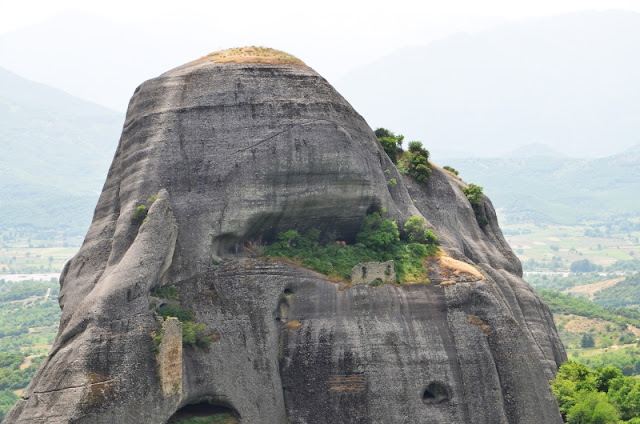
















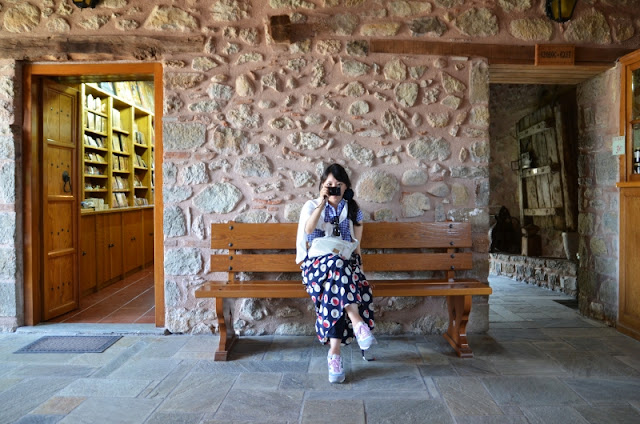














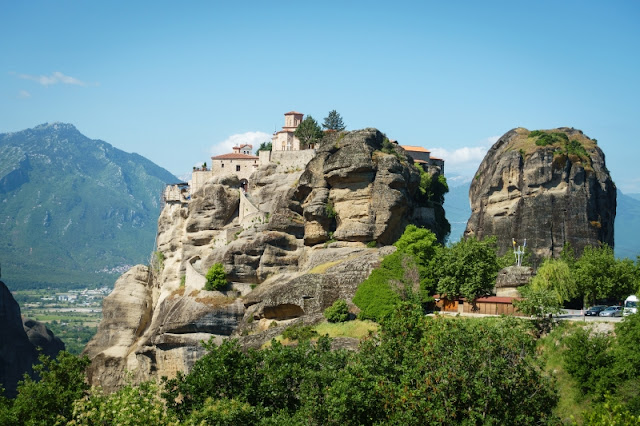




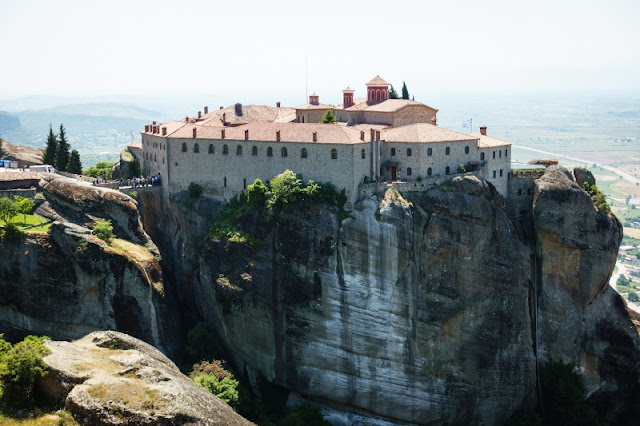



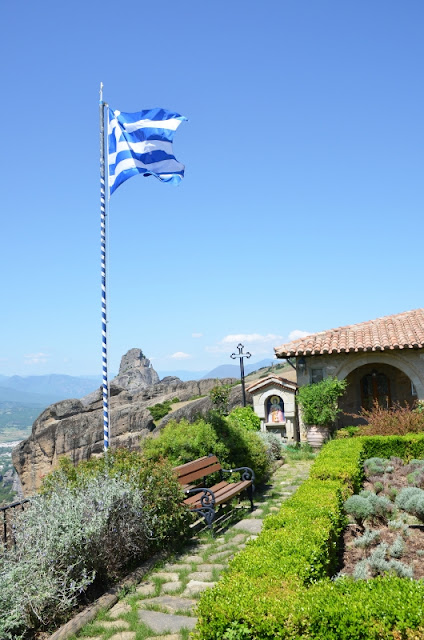



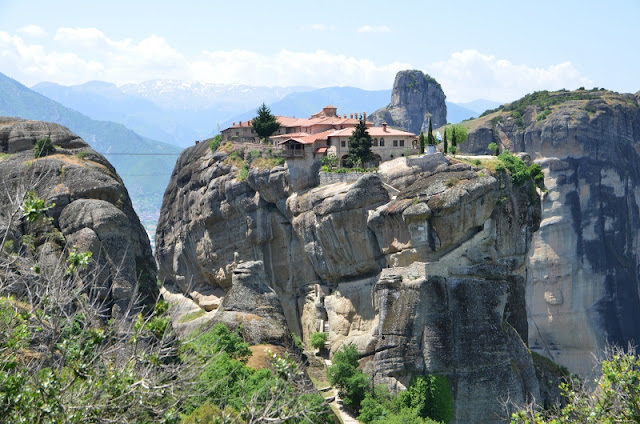


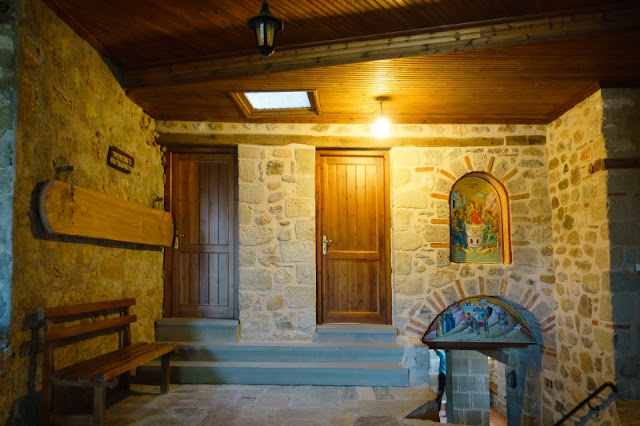













No comments:
Post a Comment